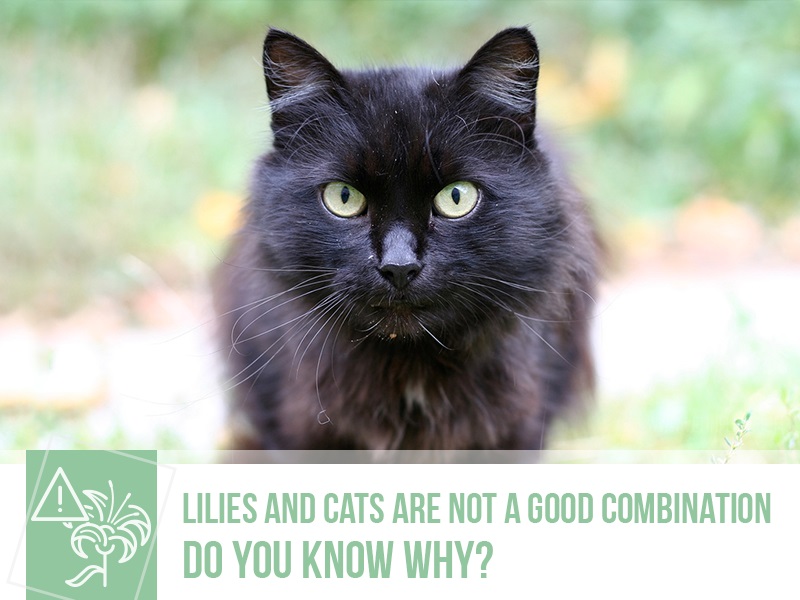
Lilies and cats are not a good combination Do you know why?

Lilies are not good plants to be around cats, as these are extremely toxic for our feline friends. Although not all lilies constitute a life-threatening danger to cats, it isn't always easy to be sure about the ones that are safe.
Many pet owners have never heard of this issue and this is incredibly important, especially for cat owners. Lilies are gorgeous household plants that are very popular during this time of the year and commonly given as gifts around Easter and Mother's Day.
Unfortunately, cats are extremely sensitive to the toxic effects of lilies, especially of the Lilium and Hemerocallis genera (the "true lilies"), and ingesting any portion of the plant, even in very small amounts, can be fatal. Easter lilies, Day lilies, Tiger lilies, Japanese Show lilies, Asiatic lilies (including hybrids) and Stargazer lilies are some examples of the poisonous plants.
Cats may be poisoned because they nibble on their household plants, but with this type of lilies it isn't even necessary for a cat to be curious about the plant and eat it. All it takes is for the cat to brush pass the flower and then lick the pollen off his or her fur, as even the pollen contains toxins. Cats can also get sick if they drink the water from these plants, if they are in a vase.
Affected cats will show nausea, salivation, depression, vomiting, diarrhoea, abdominal pain, disorientation, tremors, seizures, and potentially fatal kidney injury.
Although it is very important for the public to be aware of this so cat owners can avoid the dangerous plants, identifying which ones are poisonous is not an easy task. Many different flowers are called lilies and to make things more confusing there are many hybrids of these plants.
The Lily of the Valley, for example, is not a true lily as it belongs to the genus Convallaria but although it doesn't cause any damage to our cat's kidneys it is still very poisonous for them.
Prompt treatment is key for the survival of a cat suffering from this type of poisoning. The toxins on these plants are rapidly absorbed once they have been ingested, and start causing damage very quickly.
If you notice any of the previously mentioned signs on your cat or if you suspect your cat may have been poisoned by one of these plants, do not wait! Take your pet straight to the vet. The sooner your pet is taken to the vet for treatment the higher are the chances for a positive outcome.
Image: "Black cat" by malfet_, was built upon and is licensed under CC BY 2.0
Would you like to know more about cats? Check our Feline Courses:
Feline courses
Published: 24 Mar 2017
Read the previous article: Spring reminders for pet owners

